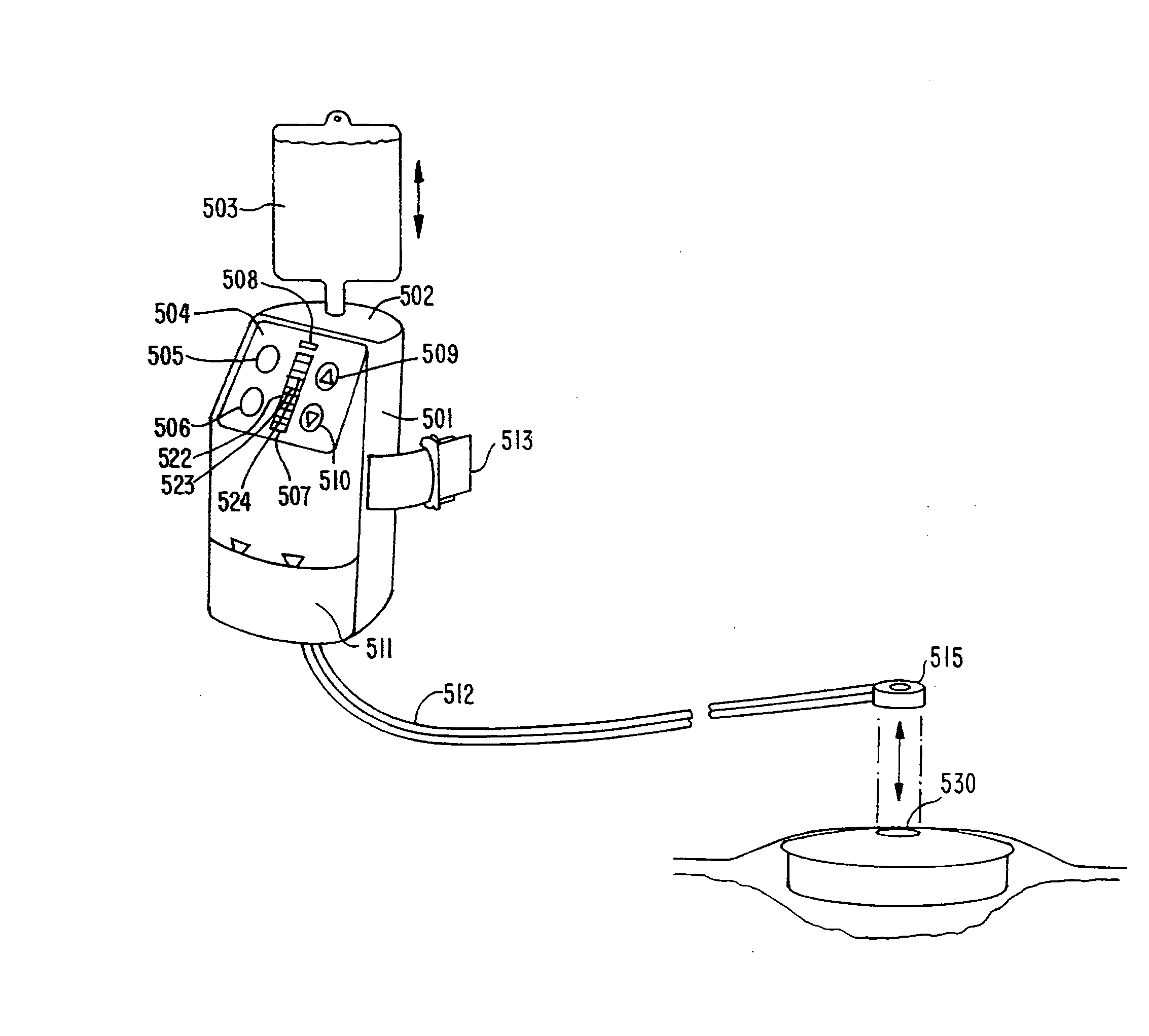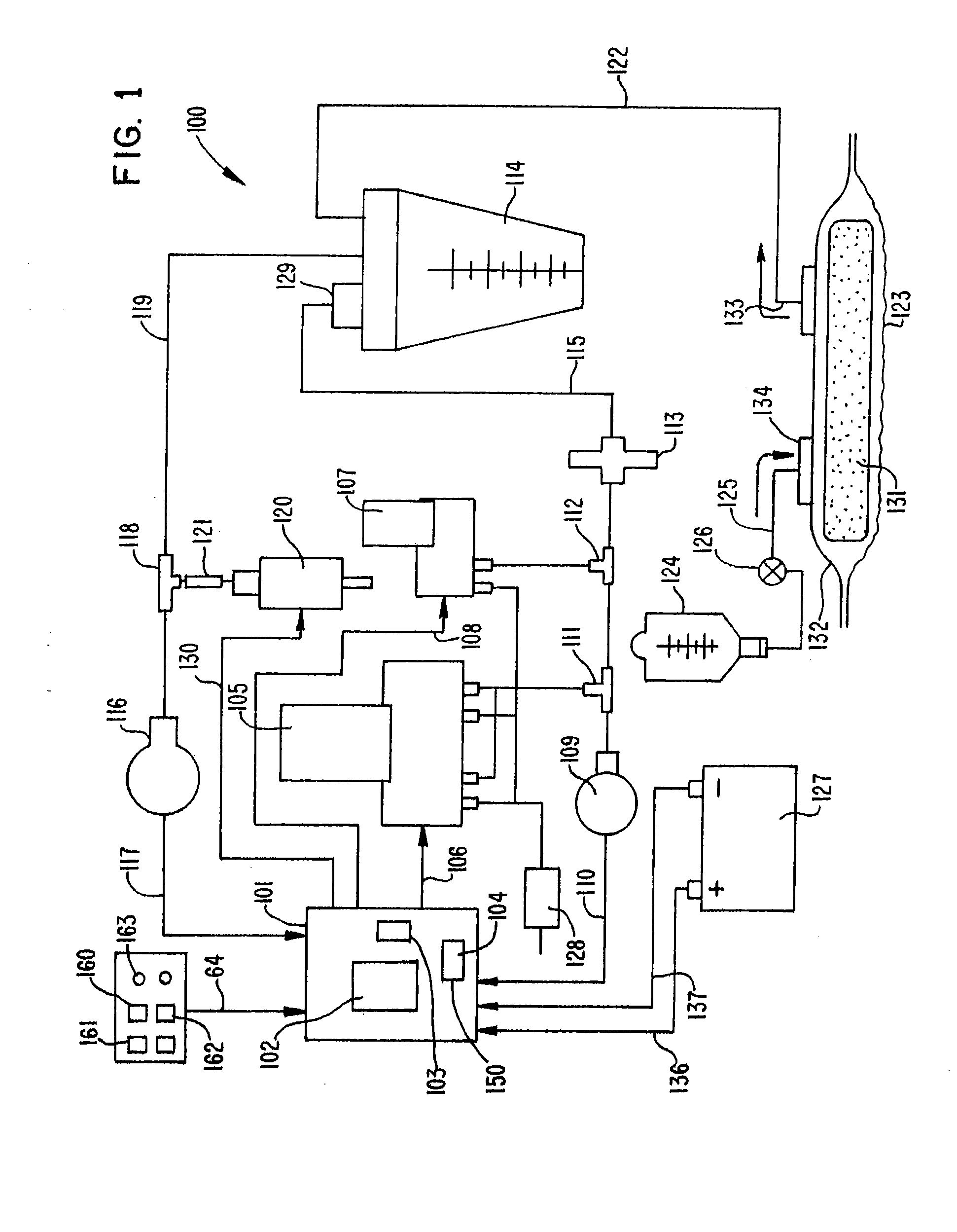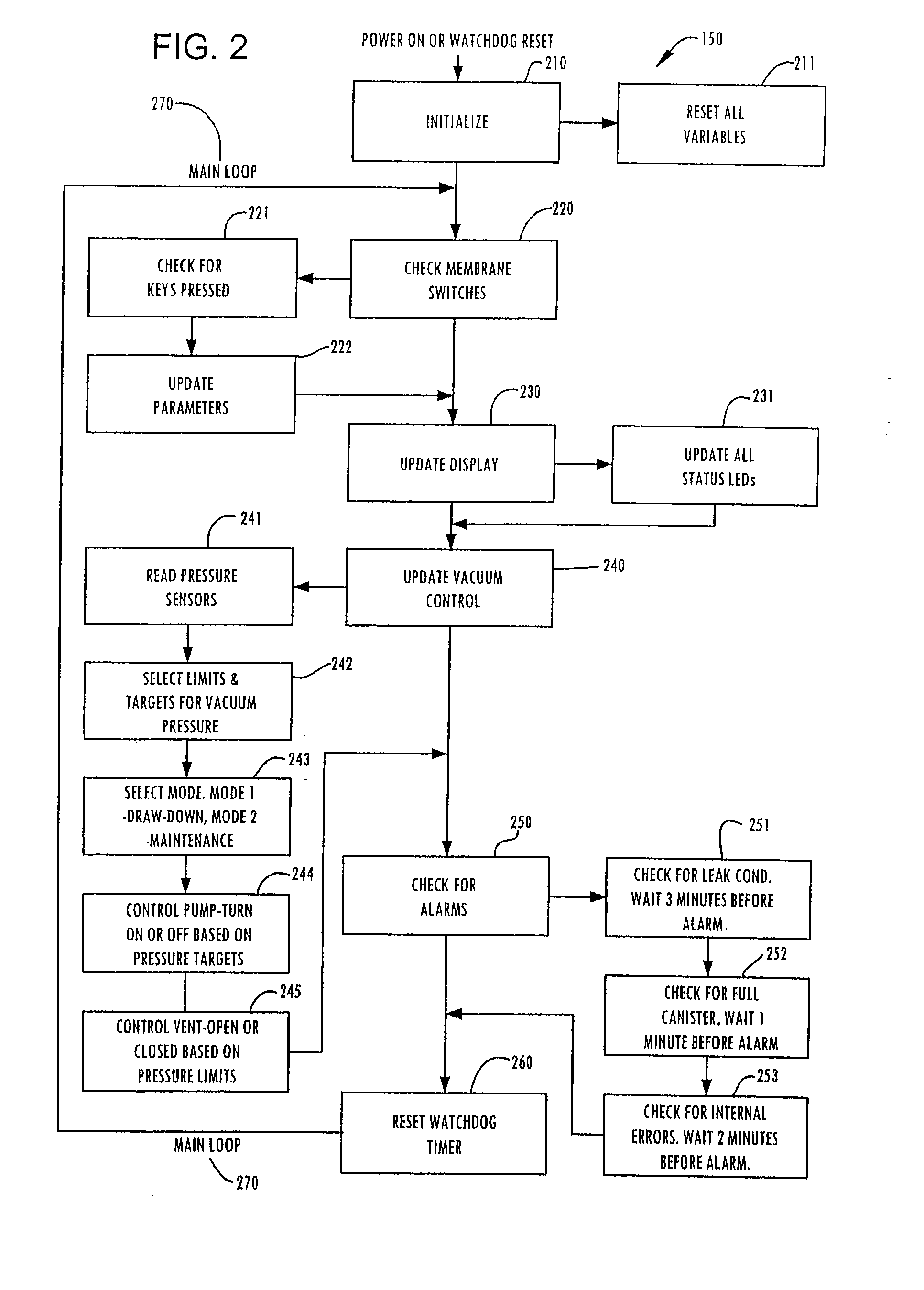Wound Irrigation Device
a technology for wounds and irrigation devices, applied in the field of wound irrigation devices, can solve the problems of device not addressing various factors concerning patients, difficult use, and cumbersome wound irrigation devices, and achieve the effect of convenient removal of fluids and high efficacy
- Summary
- Abstract
- Description
- Claims
- Application Information
AI Technical Summary
Benefits of technology
Problems solved by technology
Method used
Image
Examples
Embodiment Construction
[0018] Although those of ordinary skill in the art will readily recognize many alternative embodiments, especially in light of the illustrations provided herein, this detailed description is of an embodiment of the invention, the scope of which is defined only by the claims appended hereto.
[0019] As illustrated in FIG. 1, a wound irrigation and vacuum drainage system is referred to by the numeral 100 and generally includes a microcontroller 101 having an embedded microprocessor 102, Random Access Memory (RAM) 103 and Read Only Memory (ROM) 104. ROM 104 contains the programming instructions for a control algorithm 150 (see FIG. 2). ROM 104 is non-volatile and retains its programming when the power is terminated. RAM 103 is utilized by the control algorithm for storing variables such as pressure measurements, alarm counts and the like, which the control algorithm 150 uses while generating and maintaining the vacuum. A membrane keypad and display 160 is electrically associated with mi...
PUM
 Login to View More
Login to View More Abstract
Description
Claims
Application Information
 Login to View More
Login to View More - R&D
- Intellectual Property
- Life Sciences
- Materials
- Tech Scout
- Unparalleled Data Quality
- Higher Quality Content
- 60% Fewer Hallucinations
Browse by: Latest US Patents, China's latest patents, Technical Efficacy Thesaurus, Application Domain, Technology Topic, Popular Technical Reports.
© 2025 PatSnap. All rights reserved.Legal|Privacy policy|Modern Slavery Act Transparency Statement|Sitemap|About US| Contact US: help@patsnap.com



